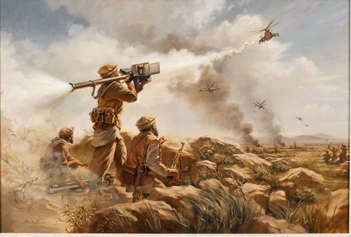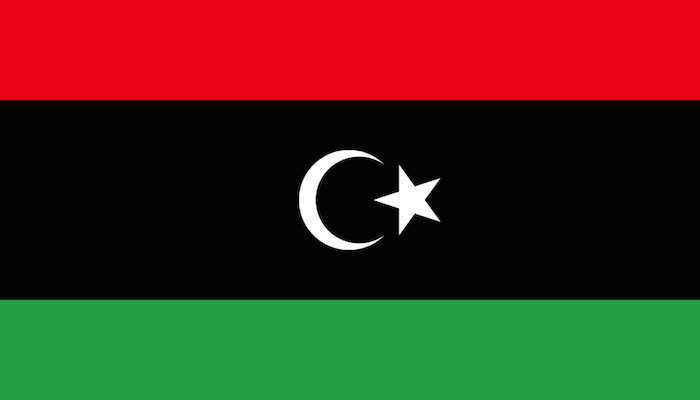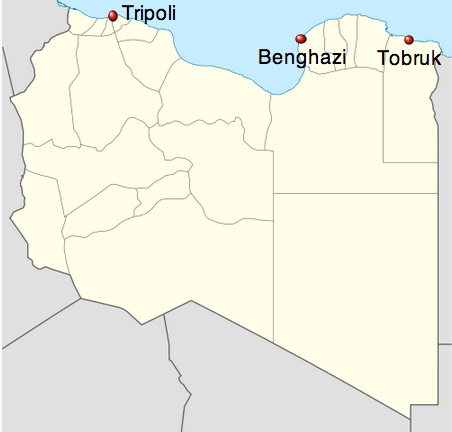Today the global media was aflutter with an announcement by senior Nigerian military officials that a deal had been reached with Boko Haram to have a ceasefire and get back the kidnapped northern girls. Boko Haram did not confirm or deny…or say anything…according to every single news report around the world that I heard or read.
I flat-out do not believe any such deal has been reached. Not even a little bit. The only thing that will convince me otherwise is when those girls are actually back home with their families and the world media can verify that fact.
Why don’t I take it seriously? In addition to the lack of any confirmation from the deciding player in the situation (Boko Haram), this year has been marked by one long series of increasingly vast fabrications and demonstrations of incompetence by Nigeria’s military and security forces.
Below are just a few of the completely absurd things that either actually happened in Nigeria or have been made up entirely by the military, just in one week of September. It’s genuinely hard to decide which ones — the facts or the fictions — are more flabbergasting. But either way, there’s no credibility anymore.
One shining week of lies and failure: Compiled September 27, 2014
From the People Who Failed to Bring Back The Nigerian Girls Comes…the receiving end of the most boring A-Team heist of all time:
Last week it was reported that government agents took $9.3m (£5.7m) in cash to South Africa to buy weapons.
[…]
South African police said last week customs officials seized the money in $100 bills in three suitcases that arrived on a private jet from Nigeria at Johannesburg’s Lanseria airport earlier in September. The two Nigerians and an Israeli allegedly did not declare the money and it was impounded.
Parliamentary inquiries into the affair were immediately stonewalled for “national security reasons.” Then, after re-affirming everyone’s lack of trust in them, the Nigerian government and military proceeded to initiate the most epic and ham-fisted scramble to get out of trouble probably since “the dog ate my homework.”
First they tried to claim that the kidnapped girls had been rescued only to have retracted that within hours. This is the second time they have tried to pull this.
Then they went for a lie so big it might almost work, except again for having no way to prove it or even prevent it being disproven… They announced that Boko Haram’s leadership had been dispatched with extreme prejudice and the group was rapidly collapsing overnight.
Now by this point in the week there was NO WAY I could believe anything the Nigerian military claims, let alone something as gigantic as that, without outside proof and yet it rapidly circulated in Western media:
The military claims Mohammed Bashir was an imposter posing as Boko Haram’s leader Abubakar Shekau, thought to have died in 2009
General Chris Olukolade of the Nigerian military said that Mohammed Bashir, who was killed in the latest offensive against Boko Haram, was a lookalike.
The Nigerian military has said that more than 260 Boko Haram militants have surrendered in north-eastern Nigeria.
Purely coincidence that they accidentally lose a ton of cash to South African customs officials, then suddenly start trying to claim they’ve rescued the kidnapped girls, and then when that’s proven false claim they’ve killed the lookalike and real leader of Boko Haram. I’m not sure they grasp how distraction tactics or plausible lies are meant to work work.
By the way: Nigeria and Cameroon’s armed forces have between them claimed to have killed the head of Boko Haram — or one of his doubles — multiple times over 5 years. Some experts think he’s been dead the whole time, like Bruce Willis. Others think he’s still alive.
Meanwhile, the claim that Boko Haram is collapsing was based on an unverified assertion of two separate incidents involving surrenders of fewer than 200 fighters … out of thousands. In contrast to those claims, Boko Haram staged multiple dramatic attacks in the 24 hours following the announcement of their purported collapse.
Wow, that held up all the way to the next day.
Trust us, this time
Again, all of that happened in, essentially, a roughly 7-8 day period preceding September 27. Now, less than a month later, we’re meant to believe that the previously “collapsing” Boko Haram has struck a major ceasefire deal and will be returning the girls, whom we’re told (without much evidence) are being treated well and are fine.
Here’s the thing: These lies matter, and they don’t mean nothing. They are deeply propagandistic, however incompetent, and this means the global media (or Western media, particularly) is complicit in this disgusting charade. There are few if any other countries where false claims of this magnitude are readily and regularly repeated with so little criticism or investigation.
Reporting false or unverified deals with insurgent groups is unwitting propaganda because it makes subsequent lack of progress appear one-sided. As in, if Nigeria’s military announces a deal and then fighting continues, it must be that Boko Haram broke the deal, instead of that there was never a deal because the government and military didn’t put in the work to make it happen. (For all we know, nothing was ever even negotiated!) We see this happen quite often during civil conflicts, as a way to score public approval points.
If a country or military announces a ceasefire or peace deal with rebel or terror group and then peace doesn’t happen, the default assumption is that the rebels/terrorists sabotaged the deal. Which is certainly plausible in many situations, but that assumption actually makes it easier for the authorities to exploit. Thus, governments have an incentive to announce non-serious or even imaginary peace offers as a done deal, to strengthen their “peacemaker” credentials. They get to say “Look, we tried to make peace and they stabbed us in the back!” and then keep fighting, and the media dutifully reports that version of events.
How the media should report on claims by Nigeria’s military
- Until Boko Haram confirms a deal and until those kidnapped girls are back, there is no deal.
- The Nigerian military lies regularly, constantly, and spectacularly. Anything they assert, at this point, should be assumed false until proven true.
- Stop repeating anything they say, without absolute confirmation. Official sources are only worth something when they’re usually reliably factual.
It’s pretty simple. Don’t splash those headlines all over the web, TV, and radio, unless and until you have absolute proof that it’s not made up. Don’t even report unverified “progress” announcements with the caveat that it can’t be confirmed. There’s no room for benefit of the doubt anymore with the Nigerian military’s statements.
We usually don’t see such epic and false proclamations from top military officials except in North Korea, and we don’t see U.S. media outlets unironically and uncritically reporting the claims of wondrous majesty and prowess by the Dear Leader. The claims by Nigeria’s military and government on the situation in northern Nigeria consistently proven untrue within about 48 hours, but buy them a little extra time and faith that isn’t warranted. Stop helping.









